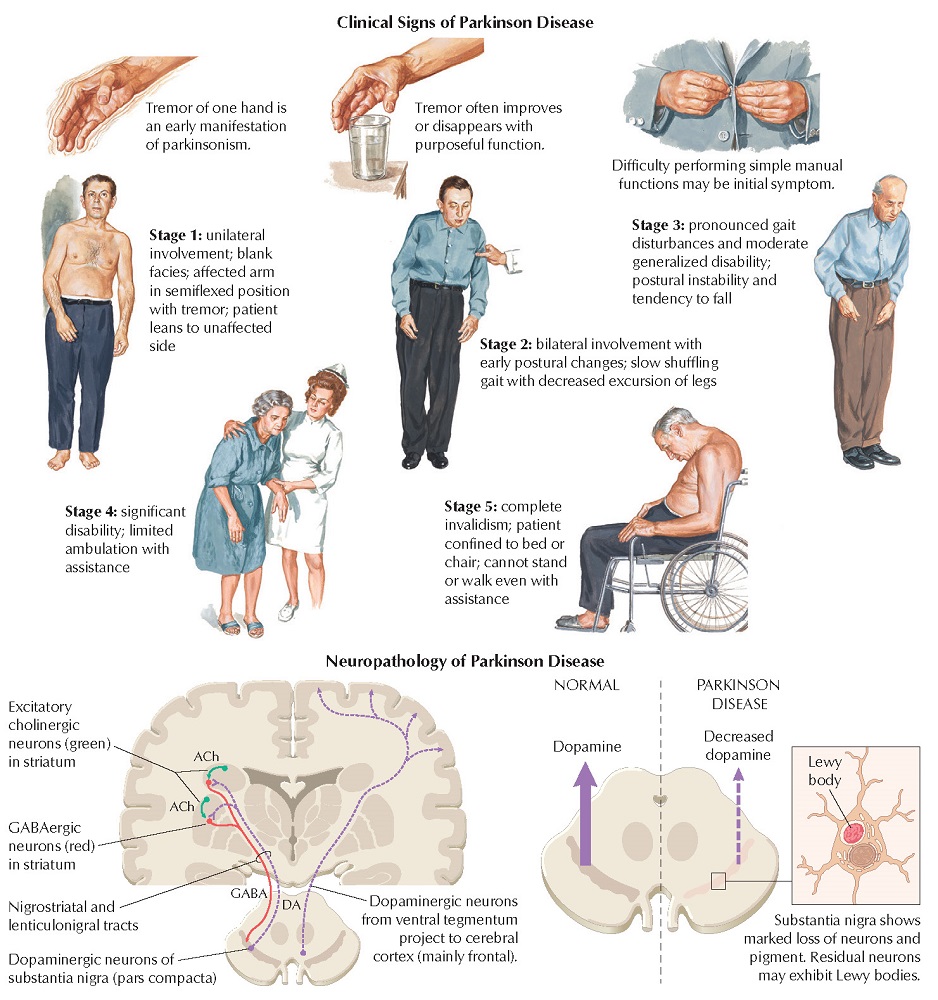Parkinsonism: Symptoms and Defect
Parkinsonism
is
a progressive neurodegenerative disease that adversely
affects motor neuron control. Major early symptoms are tremor at rest,
bradykinesia, muscle rigidity, and flat facial affect. If untreated, the
condition worsens, leading eventually to complete immobility and early
mortality. The prevalence is approximately 2% in persons older than 65 years. A
genetic predisposition seems likely, but
environmental factors (including viral infections and neurotoxins) may play a
role. The most distinctive neuropathologic finding is progressive loss of dopaminergic
neurons of the pars compacta of the substantia nigra.
Projections of dopaminergic neurons from the substantia nigra correlate with
motor and cognitive deficits. Degeneration of dopaminergic neurons in the
nigrostriatal tract causes loss of inhibitory dopamine action on striatal
GABAergic neurons and leads to excessive cholinergic neuron excitation of these
striatal neurons. Drugs such as levodopa (increases dopaminergic activity) can
help.





